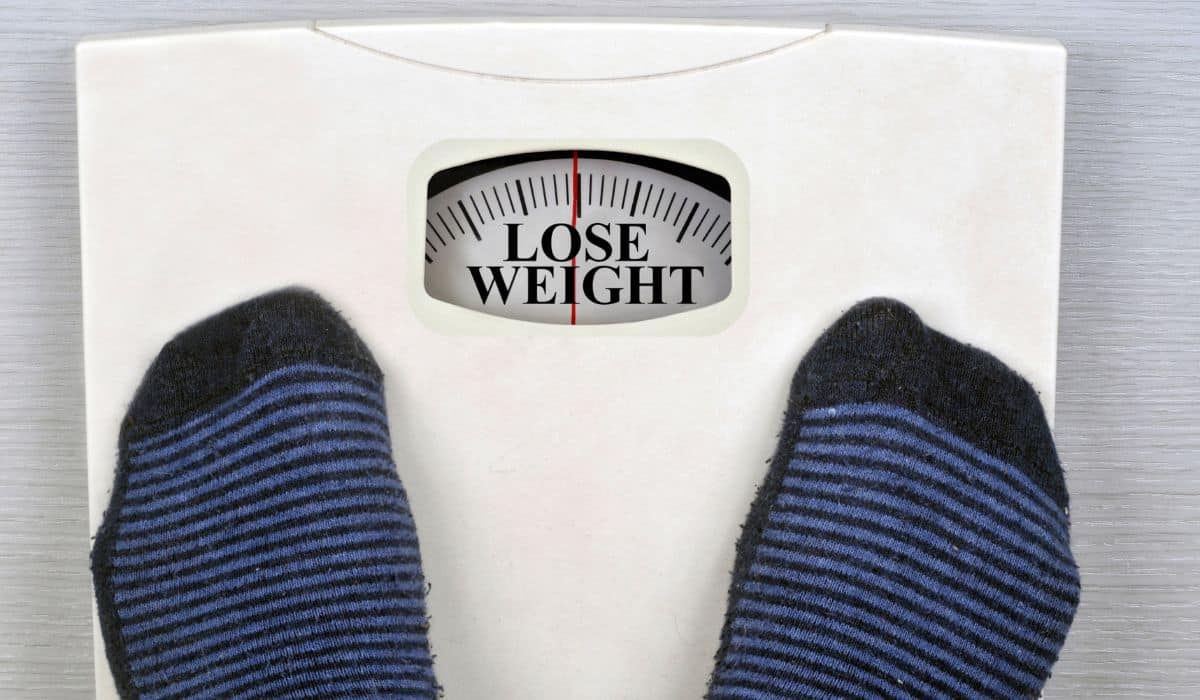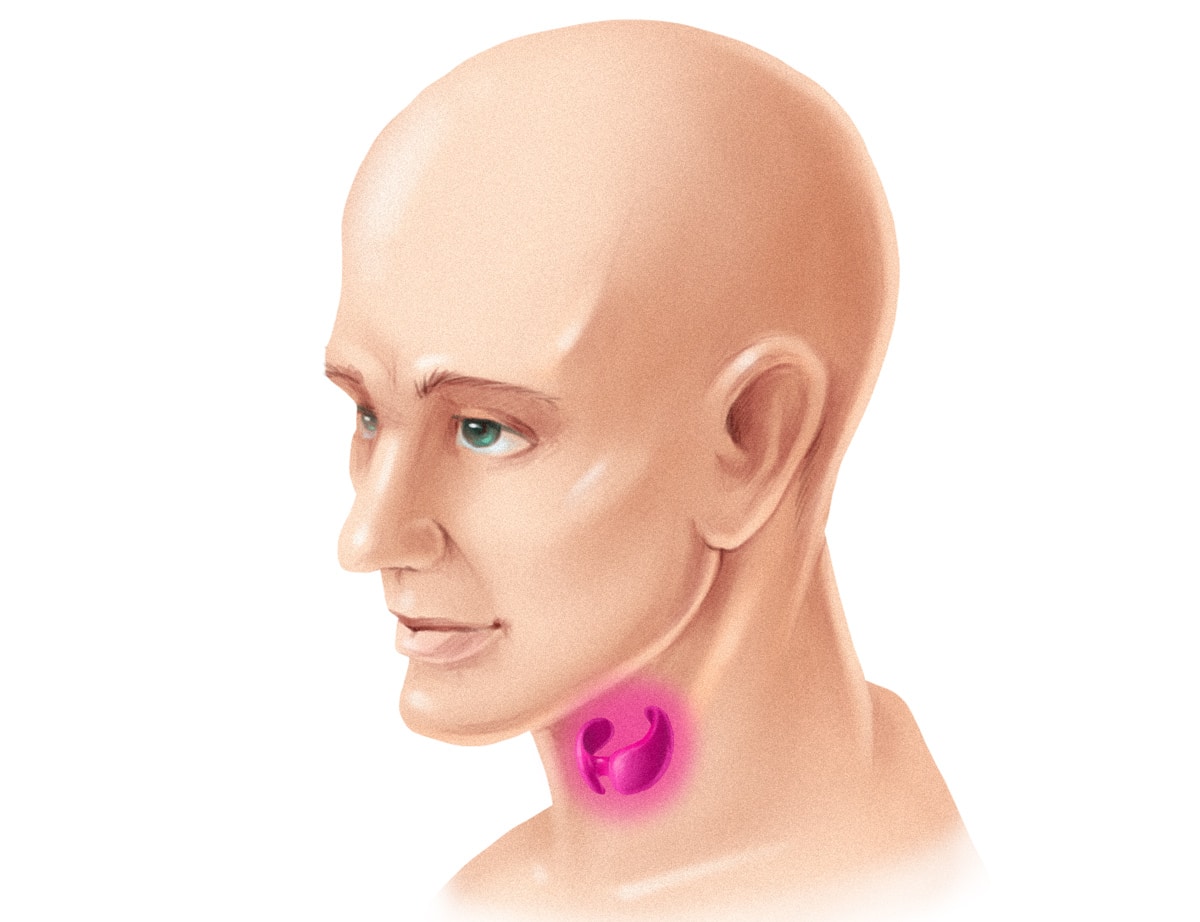
A higher BMI is associated with several different types of digestive symptoms, but most people tend to assume that either the weight itself causes the digestive problems, or that the root cause of both is a lousy diet.
But weight obviously isn't the only cause of gastrointestinal problems (plenty of thin people have them), and gut symptoms can actually have causes that you might miss if you’re only looking at questions like “what foods irritate the gut?” or “What am I having trouble digesting?” Sometimes, it's not quite as simple as "you need to eliminate __________."
So here are some suggestions for what could be causing gut problems other than foods that directly irritate the gut, especially if you’re also having trouble with your weight. Thyroid disease and ENS dysfunction can affect digestive symptoms and weight at the same time. They're both still food-related, but more complicated than just “something irritating the gut," and they're easy to miss if you're not looking for them.
Digestive Symptoms, Weight Gain, and Thyroid Problems
This study went over all the ways that thyroid problems can cause digestive symptoms – some people with chronic digestive problems might not realize that what they actually have is a thyroid problem. The study went over the symptoms of overactive and underactive thyroid. To name a few of them:
Hyperthyroidism (overactive thyroid):
- Trouble swallowing (dysphagia)
- Gastritis
- Vomiting
- Pylori infection
- Diarrhea
- Lactose intolerance
- Liver problems and hepatitis
- Weight loss (or more rarely, weight gain)
Hypothyroidism (underactive thyroid):
- Trouble swallowing (dysphagia)
- Dyspepsia (chest/upper abdomen discomfort)
- Low stomach acid (which can cause digestive and absorption problems)
- Constipation
- SIBO (bacterial overgrowth in the small intestine)
- Symptoms of Irritable Bowel Syndrome (gas, bloating, constipation, and/or diarrhea)
- Liver problems and hepatitis
- Gallstones
- Non-Alcoholic Fatty Liver Disease
- Weight gain
- Anemia
The study noted that many patients show up with only GI symptoms, and that their thyroid problems might fly under the radar – it’s just not very common for people to make the mental leap from “I can’t lose weight and my digestion really stinks” to “I must have a thyroid problem.”
Thyroid Disease and Celiac Disease

And one more thing from that study: autoimmune thyroid disease is associated with much higher rates of Celiac Disease than in the general population. People with Celiac Disease also have much higher rates of autoimmune thyroid disorders than healthy people. There may be a common genetic link between the two diseases. The study claims that malabsorptive digestive diseases, like Celiac Disease, are one of the most common reasons why patients might have hypothyroidism that doesn’t respond to treatment.
That points to a huge tangle of gut-weight issues: someone could have Celiac symptoms and try to treat them with a gluten-free diet, but not realize they also have a thyroid problem causing both weight gain and digestive problems. But if you even suspect this might be you, ask your doctor, not the internet.
Digestive Symptoms, Weight Gain, and ENS Problems
Another problem that might be behind digestive symptoms and weight gain (or trouble losing weight) is something damaging the enteric nervous system. The enteric nervous system (ENS for short) is the network of nerves in your gut, or your “gut brain.”
The ENS controls the movement of food through the small intestine, secretion of digestive enzymes, and pain perception. Damage to the ENS can cause diarrhea, constipation, maldigestion, nausea, and/or chronic digestive pain. Causing constipation could then go on to cause SIBO and other gut problems further down the line. Problems with a particular type of ENS cells, called glial cells, can also affect Inflammatory Bowel Disorder and other types of gut inflammation.
ENS dysfunction is connected to weight, but it’s not necessarily because the ENS problems themselves cause weight gain. It’s that some of the same issues that make it hard to lose weight can also damage the ENS, so both problems (digestive and weight symptoms) might be reflecting the same root cause, often something more complicated than one particular food that you are or aren’t eating. Just to name two examples:
- Psychological stress. If you’re already familiar with the gut-brain axis, you know that your mood and psychological well-being have all kinds of effects on gut health. The brain in your head “talks” to the nervous system in your gut through the vagus nerve, and long-term problems like psychological stress can significantly affect GI symptoms. Just to take one example, guess what’s associated with bloating and IBS symptoms in general among women? Psychological stress. In general, chronic stress signals from the brain slow digestion and can cause constipation (although acute stress signals can cause diarrhea). GABA, a neurotransmitter involved in anxiety, also has significant effects on gut motility and function.
- Diabetes and high blood sugar. High blood sugar can damage the ENS in the same way it damages any other nerves, and gastrointestinal problems are actually one of the major symptoms of diabetes. Damage to the ENS can cause diarrhea and/or constipation. High blood sugar also makes motion sickness worse.
Many of the things that damage the ENS are also strongly linked to weight gain. Chronic stress can wreck your metabolism faster than you can say “I just don’t have time to sleep these days.” Diabetes and high blood sugar are both pretty obvious candidates for reasons why weight loss might be difficult. There are also other diseases that can damage the ENS, like Parkinson’s disease and HIV, but these are more typically connected to uncontrolled weight loss than uncontrolled weight gain.
So if you're struggling to lose weight and also having trouble with digestion, try thinking about your stress and blood sugar levels before embarking on a 30-day trial of a combined AIP/low-FODMAP/low-histamine/low-salicylate diet. It might get you further.
Summing it Up
All of this is interesting, because it suggests some reasons behind chronic gut symptoms that go beyond “you ate the wrong thing, and now your gut is unhappy.” For some people, that’s really how it works (you have lactose intolerance, but you stop eating dairy, and now your gut is happy again). But for other people, chronic digestive trouble + slow weight loss could indicate a problem that started outside the gastrointestinal system, and the solution might be a little more than just eliminating particular foods or taking particular supplements.
Instead of looking for more and more foods to restrict, it might be worthwhile to consider a different cause, especially if you’re struggling with your weight as well as your digestion. Thyroid function and ENS dysfunction are both related to weight problems as well as gastrointestinal symptoms. And both of them are related to food and diet, but it's not as simple as "eliminate this."





Leave a Reply